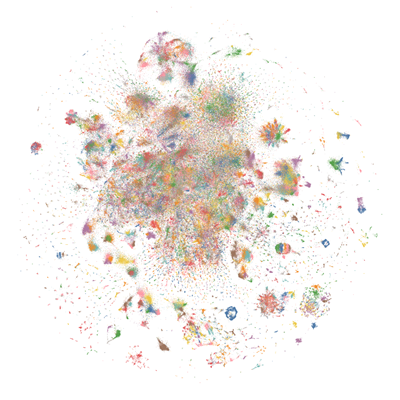Quantizations of https://huggingface.co/Open-Orca/OpenOrcaxOpenChat-Preview2-13B
Inference Clients/UIs
From original readme
We have used our own OpenOrca dataset to fine-tune Llama2-13B using OpenChat packing. This dataset is our attempt to reproduce the dataset generated for Microsoft Research's Orca Paper.
This second preview release is trained on a curated filtered subset of most of our GPT-4 augmented data.
This release highlights that our dataset and training methods have surpassed performance parity with the Orca paper. We measured this with BigBench-Hard and AGIEval results with the same methods as used in the Orca paper, finding ~103% of original Orca's performance on average. As well, this is done with <1/10th the compute requirement and using <20% of the dataset size from the original Orca paper.
We have run extensive evaluations internally and expect this model to place number 1 on both the HuggingFaceH4 Open LLM Leaderboard and the GPT4ALL Leaderboard for 13B models.
"One" of OpenChat has joined our team, and we'd like to provide special thanks for their training of this model! We have utilized OpenChat MultiPack algorithm which achieves 99.85% bin-packing efficiency on our dataset. This has significantly reduced training time, with efficiency improvement of 3-10X over traditional methods.

Want to visualize our full (pre-filtering) dataset? Check out our Nomic Atlas Map.
We are in-process with training more models, so keep a look out on our org for releases coming soon with exciting partners.
We will also give sneak-peak announcements on our Discord, which you can find here:
Prompt Template
We use our own prompt template which we call "OpenChat Llama2 V1".
The model is heavily conditioned to work using this format only and will likely encounter issues such as run-on output which emulates a chat between a user and assistant if this format is not properly followed.
Examples:
# Single-turn `OpenChat Llama2 V1`
tokenize("You are OpenOrcaChat.<|end_of_turn|>User: Hello<|end_of_turn|>Assistant:")
# [1, 887, 526, 4673, 2816, 1113, 1451, 271, 29889, 32000, 4911, 29901, 15043, 32000, 4007, 22137, 29901]
# Multi-turn `OpenChat Llama2 V1`
tokenize("You are OpenOrcaChat.<|end_of_turn|>User: Hello<|end_of_turn|>Assistant: Hi<|end_of_turn|>User: How are you today?<|end_of_turn|>Assistant:")
# [1, 887, 526, 4673, 2816, 1113, 1451, 271, 29889, 32000, 4911, 29901, 15043, 32000, 4007, 22137, 29901, 6324, 32000, 4911, 29901, 1128, 526, 366, 9826, 29973, 32000, 4007, 22137, 29901]
For UIs with Prefix and Suffix fields, these will likely work:
Prefix (include a space after colon):
User:
Suffix (space after colon):
<|end_of_turn|>\nAssistant:
Oobabooga's text-generation-webui instructions can be found further down the page.
- Downloads last month
- 0
